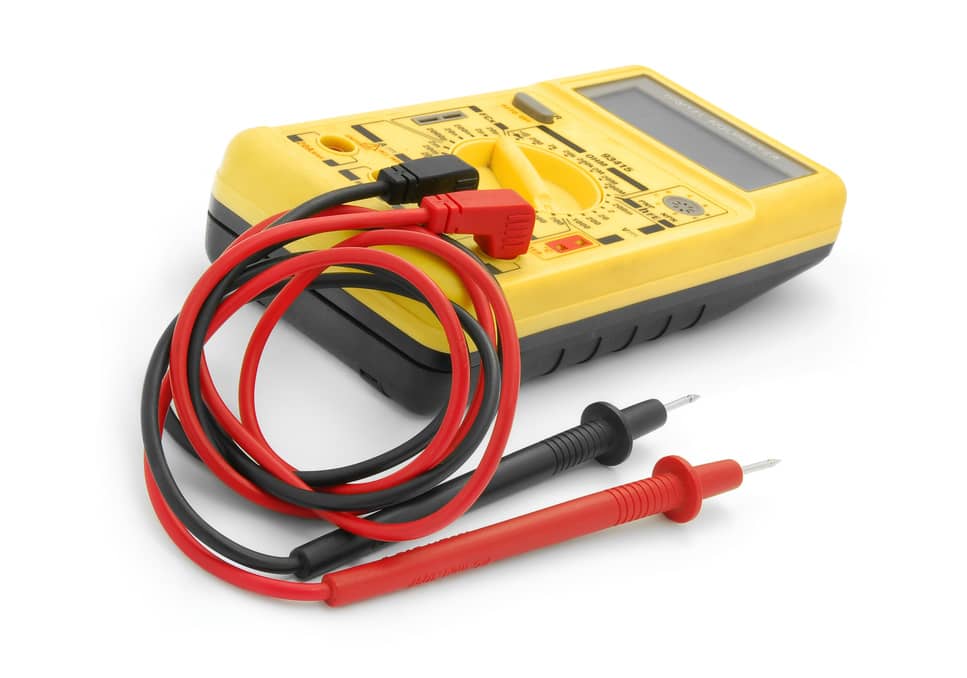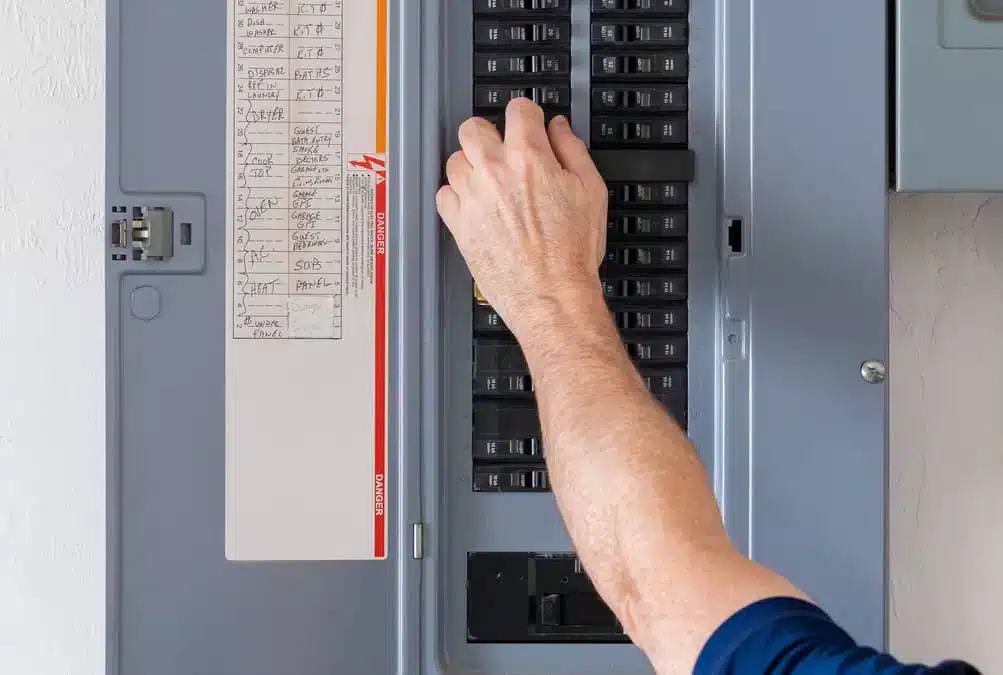When it comes to owning a home, there are a lot of working parts that need to be paid attention to. If you neglect some of these working parts, you could end up with some serious consequences. Dealing with electrical issues is definitely a tough area for a homeowner. Typically, you will want to call on a licensed electrician to assist. Keep in mind that circuit breakers can fail for various reasons. Can a circuit breaker fail without tripping? Yes, the mechanical switch could be stuck, the breaker could be bad, or the wiring could be off.
Let’s take a look below at some more details regarding a circuit breaker that fails but doesn’t trip.
What Is A Circuit Breaker?
A circuit breaker is the most purposeful piece in your entire electrical system. Without a good circuit breaker, your home risks a dangerous overload scenario. Overloads to the electrical system could cause shock, electrocution, or even a fire in the home. Regardless of how well your circuit breakers have been constructed, they can go bad. When they fail, you will end up with a variety of electrical issues in your home.
How Does A Circuit Breaker Trip?
Believe it or not, there are a couple of reasons for a circuit breaker to trip. Let’s take a look below at what those reasons might be.
- Overload – This is very common and happens to protect your appliances and home from fire and electrocution. If there are too many items connected to one circuit, it could overload the electrical system and cause your breakers to trip.
- Short circuits – This occurs when a hot wire touches another wire. The wire could be the ground wire, neutral wire, or another hot wire. If the electrical current in the hot wire comes in contact with the neutral wire, the electrical current will be sent back to the panel as a “shortcut.” This is the most common way electrical shocks and house fires occur.
- Ground Fault – This occurs when a hot wire touches a non-current carrier of an electrical circuit. The hot wire could be touching a metal pipe or a metal box. If you don’t have a ground-fault circuit interrupter or GFCI then you risk electrocution. GFCIs are meant to keep ground faults from occurring. You wouldn’t want the electrical current to be sent through any area that you are standing in.

How Do I Test A Circuit Breaker That Won’t Trip?
When this occurs you will want to test the circuit breaker. Purchasing a digital multimeter or hiring a licensed electrician are your only two choices. The multimeter is handheld and will test for amps, resistance, voltage, and other electrical variables. Let’s take a look below at some troubleshooting options. Keep in mind it is highly recommended that you hire a licensed electrician to assist.
- Unplug every appliance or device from the circuit that you are going to test.
- Remove all screws from the breaker box panel so that you can access the breakers that you will test with a multimeter.
- Set your multimeter to the proper voltage setting and plug the black wire into the common port. Then plug the red wire into the “V” port on the breaker that is being tested.
- Use the multimeter’s red probe and touch it to one of the terminal screws. Then hold the black probe against the neutral bar. This is the piece that has white screws. Do this simultaneously.
- The single-pole breaker will give you a reading close to 120 volts. However, a double-pole breaker will give you a reading between 220 V and 250 V.
Other Recommended Maintenance
Now that you understand what happens when a breaker fails but doesn’t trip you can read up on how many GFCI outlets you should have on one circuit breaker. It is ok to have two or more GFCI outlets on the same circuit breaker.
Next, check into what is a double-tapped breaker. Having two wires coming out of one breaker is not ideal. A licensed electrician can fix this for you. Be sure to reach out to a licensed electrician if you notice a double-tapped breaker.
Lastly, if you are looking to save some money on your electrical bill, go ahead and read up on some great ways to reduce your electricity usage and reduce your electricity bill.

When Do I Call A Professional?
Hiring a licensed electrician to assist with any circuit breaker needs is a necessity. They would be able to swap out any circuit breakers fairly quickly and save you from a potential house fire. Keeping your family safe is important. Additionally, a licensed electrician will know the electrical code and ensure that the job is done correctly. Call on your local home inspection team for a full electrical inspection of your home during a full home inspection. Also, they can recommend a reputable licensed electrician in your local area.
Conclusion
Electrical projects are not something a homeowner typically looks forward to. There is always that fear of electrical shock or worse, electrocution. Keep you and your family safe by calling on your local home inspection team to assist. They will inspect your entire electrical system to determine which breakers might need replacing, as well as check the wiring of the electrical system. Reach out to Fox Mountain Property Inspections for a full home inspection in Maryland, Pennsylvania, Virginia, and West Virginia states.




